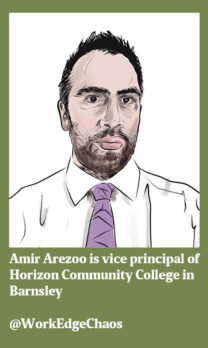Do you know when to use ‘little-and-often’ teaching?
@Suchmo83
As cognitive science becomes de rigueur in terms of teaching discourse, it’s pertinent that many are applying pause points to its implementation. Christopher Such gives us good reason: as always, context matters when considering evidence-based practice and that one method is not to be applied wholesale. For example, in terms of recall practice some parts of the curriculum are more appropriate than others. As Such points out, this may seem obvious (or “exasperating”, as he puts it), but as he rightly states: “Raising some awareness of this way of thinking with our colleagues – especially those with less experience – has the potential to be hugely beneficial.” In other words, when considering evidence-based practice, it’s important not to forget expert-induced blindness.
@bennewmark
Prompted by Matt Pinkett declaring his views on homework on Twitter, Ben Newmark wrote a defence of this timeless practice based on three principles: that it should be “efficient and useful”, “clear and doable” and tracked centrally. Newmark sets out the rationale for each. The statement “If schools stopped setting homework, the most privileged of our young people would continue to do it because their parents, understanding the competitive nature of schooling, would insist” should be the centrepiece of any argument in favour of homework, particularly for those of us who work in or with communities of socio-economic deprivation.
UnsustainED? Why ESD isn’t working
@robin_macp
As Robin MacPherson points out, Unesco set aside a whole decade to focus on education for sustainable development (ESD). Can we say this has had a noticeable impact on education? According to this post, we cannot. There are numerable contributing factors, but the one that struck me the most was “death by certification” – the phenomenon of dwindling effort once a school is awarded “eco” status. As MacPherson states with an irony not lost on his readers, what ESD failed to grasp was the need to “make sure that education about these issues is itself sustainable”.
The more pointable-at things aren’t always the best things
@rosalindphys
In healthcare, it is well-documented that the cost of stopping people getting ill is less than the cost of treating the illness. Obvious yes, but as Rosalind Walker sets out in her post, do we have a handle on this in education? When it comes to the big questions of male underachievement, the disadvantage gap, SEND, etc, Walker says: “We’d like narrowly defined, easily measured activities to be the best things to address these areas, because that would be convenient for accountability . . .” But she adds: “When we nominate these isolated interventions, we distract from the important work of the school”. I agree with Walker that “behaviour, curriculum and teaching” are the correct policy levers to address those questions in school, but leaders need to come to terms with the fact that getting those three areas right needs long-term, strategic thinking.
@johnthomsett
By placing the spotlight on teaching and learning in his latest post, John Thomsett reminds all those in senior leadership what is at the heart of all that we do. Hindsight is a wonderful thing when it comes to reflecting on one’s own practice, and Thomsett urges to accept that “throwing books at teachers [. . . ] will do diddly squat to improve teaching”. Instead, he demonstrates the leadership lessons he’s learned in establishing teaching and learning development, with one important caveat: “Until you have good student behaviour in lessons right across your school, you cannot focus upon developing teaching and learning.” Wise words.












Your thoughts